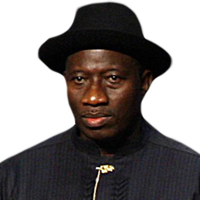PORT HARCOURT, Nigeria -- On Oct. 2, Nigeria celebrated the 51st anniversary of its freedom from British rule. A large gala was planned in Abuja, the fast-growing Nigerian capital located in the center of the country.
But, days before the celebrations, Boko Haram, a Muslim extremist group based in the country's north, and the Movement to Emancipate the Niger Delta (MEND), based in the country's oil-rich south, both threatened to disrupt the festivities with violence. Boko Haram had already made it clear that it was capable of attacking Abuja on Aug. 26, when it exploded a bomb at the United Nations building there, killing 23. And just a week before the scheduled gala event, a bomb scare at the country's National Assembly sent lawmakers scrambling for safety.
MEND had long ago showed itself capable of such an attack. It is responsible for a string of bombings, kidnappings and killings against the Nigerian government as well as against oil companies in the south over the past decade. And as Boko Haram has emerged, MEND has become even more active in an effort to reinsert itself into Nigeria's national conversation.

